By Dr. Hayu Prabowo, Chairman of the MUI Environmental and Natural Resources Breeding Institute (LPLH-SDA)
Unsustainable human activities continue to degrade vast areas of the planet and if we continue our production and consumption patterns as is, this could result in widespread ecosystem collapse and further biodiversity loss.
The climate crisis continues to be the greatest existential threat to humanity and will exacerbate challenges of poverty, food security, water supplies, natural disaster resilience and peace. Just 100 companies are responsible for 71% of global emissions.
It’s, unfortunately, the poor and other vulnerable groups who contribute the least to climate change but are the ones who suffer the most from climate change and its consequences.
Also Read: The Forty-Four-Days of Glory: Azerbaijan’s Struggle for Justice and Peace
We live in an interconnected world. A drought or flood in one part of the world can disrupt supply chains or move commodity markets in another with serious implications for the poor and the vulnerable like women and youth.
Global Environmental Governance includes organizations, policy instruments, financing mechanisms, rules, procedures and norms that regulate the processes of global environmental protection. The environmental governance system we have today reflects both the successes and failures since the global environmental movement started in the early 70s.
Climate change is a complex problem and there is no single roadmap to overcome it. There are no quick technical fixes to solve the climate crisis and our overexploitation of natural resources.
We cannot afford to be complacent and hope that science and technological progress alone will solve these pressing problems. Nor can we just rely on governments, big corporations and other powerful actors to address it.
Also Read: Palestine Solidarity Month: A Collective Movement for Al-Aqsa and Palestine’s Freedom
Instead, transitioning to a more sustainable future requires a new environmental governance system and the engagement of the full spectrum of society and the employment of innovative approaches that protect the natural environment based on behavioural and ethical changes in environmental governance.
Adopting a more sustainable future with immediate engagement of the full spectrum of global society and fundamental changes in our behaviour towards the natural world, our consumption and production patterns to find more sustainable and efficient ways of using natural resources.
The actions to be taken vary immensely depending on numerous factors and the capabilities of different actors. The question then is: how can we rebuild global environmental governance and make a difference to the environment and climate change?
Given that the climate crisis is rooted in a complex web of economic, social and cultural factors, as well as belief systems, social attitudes and perceptions, it is worth considering how ethics impact our ability to address it.
Also Read: Hassan al-Turabi: A Controversial Thinker from Sudan
The unsustainable socio-economic systems, and consumption and production patterns that dominate much of the world today, reflect social attitudes. To make global human activity more sustainable, therefore, requires return to the values, beliefs and ethics that drive human beings and their relationship with the natural environment.
For many people, these values and ethics will be inspired largely by their faith. Despite the great diversity of religions and beliefs, virtually all share a common ethic based on harmony with nature and an obligation to preserve it from destruction. Therefore, in this time of unprecedented global environmental degradation, a new environmental ethic based on universally shared values is required, one that places a greater value on nature and connects to spiritual beliefs.
As a testament to growing faith engagement, in the lead-up to COP 21, held in Paris at the end of 2015, many faith leaders and organisations called on governments to take climate change seriously and commit to addressing it. This formed part of a much broader global advocacy movement that led to the creation of the Paris Agreement and the climate measures it contains.
Faith groups representing many religions, denominations and creeds released their own statements and declarations concerning climate change and urging action to tackle it.
Also Read: Who Exactly is the RSF Group Shaking Sudan?
Faith greatly influences the mindsets and behaviours of people that follow it. It is increasingly recognised that faith can be a great motivator in inspiring adherents to engage in climate action.
A collective environmental ethic does not mean homogenising the diverse perspectives religions offer. Rather it entails embracing diversity and creating a common notion of a moral duty to protect the environment that can serve to bridge religious divides whilst incorporating the expertise, knowledge and practices that different faiths provide. The aim should be that humans learn to live in harmony with nature and with one another.
The spiritual as well as the wealth powers of faith-based organizations can be an indispensable power in the implementation of nature-based solutions given the extensive land and resources under their control and the educational leverage they have. The influential outreach, credibility and connection with faith followers are the most essential resources that can lead to behavioural change in believers.
Lifestyles identify how we live — a set of behaviours, choices, and habits shaped by social, economic, and political spheres of life. Targeting a change in lifestyles is an ultimate long-term solution to achieve planetary health and global sustainability. Many of the world’s religions contain teachings regarding care of the Earth, wise use of natural resources, working for the common good, social justice, and well-being for all which speak to the four dimensions of sustainable development (environmental, social, economic, and cultural sustainability).
Also Read: The Two-State Solution (Palestine–Israel) in Historical Perspective
Every sector and social group in the world have a responsibility to contribute towards a greener, more sustainable future, and religious organisations are no exception. FBOs must look at how they can accelerate and scale-up these contributions, as well as reducing practices that harm the environment.
Faith leaders can be the champions of climate justice, but also lead efforts by divesting from environmentally harming investments towards impact investment. We need a new economic model that puts the people and the planet at the core of focus. Faith-based investment institutions are no exception.
The stimulus and rescue packages post COVID19 must target cleaner industries, such as renewable energy providers, sustainable modes of transport, and carbon-neutral businesses.
We do not have the luxury of time, but we have the wealth of faith values that drives the behaviors of 85% of the people. So let’s tap into this rich resource. (AK/RE1)
Also Read: Enchanted by K-Dramas, Dragged into Slander: Time for Muslims to Rise!
Mi’raj News Agency (MINA)






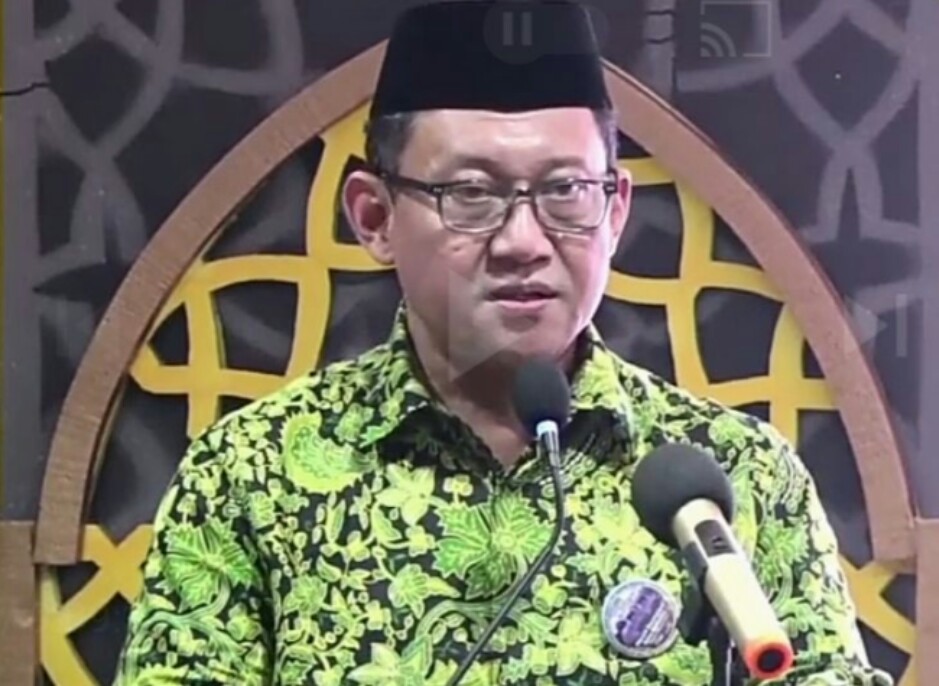







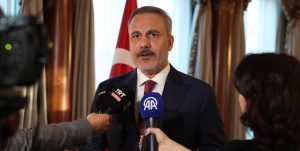

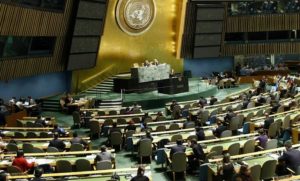
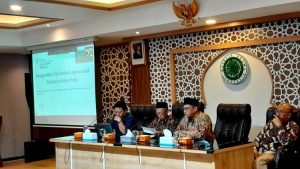

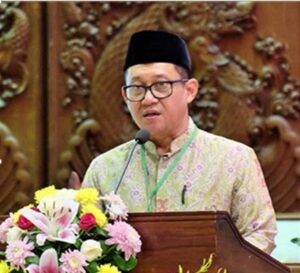

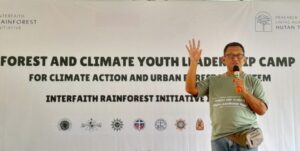
















 Mina Indonesia
Mina Indonesia Mina Arabic
Mina Arabic